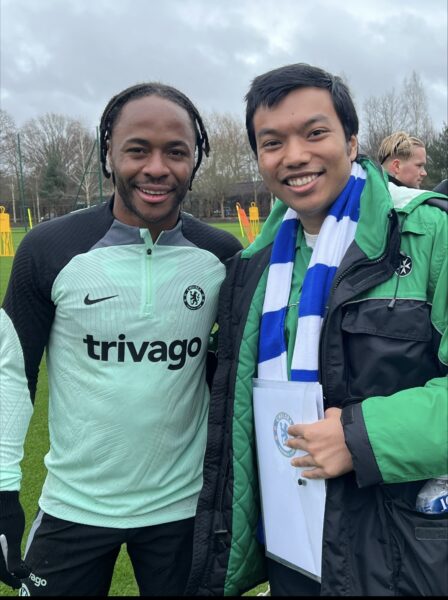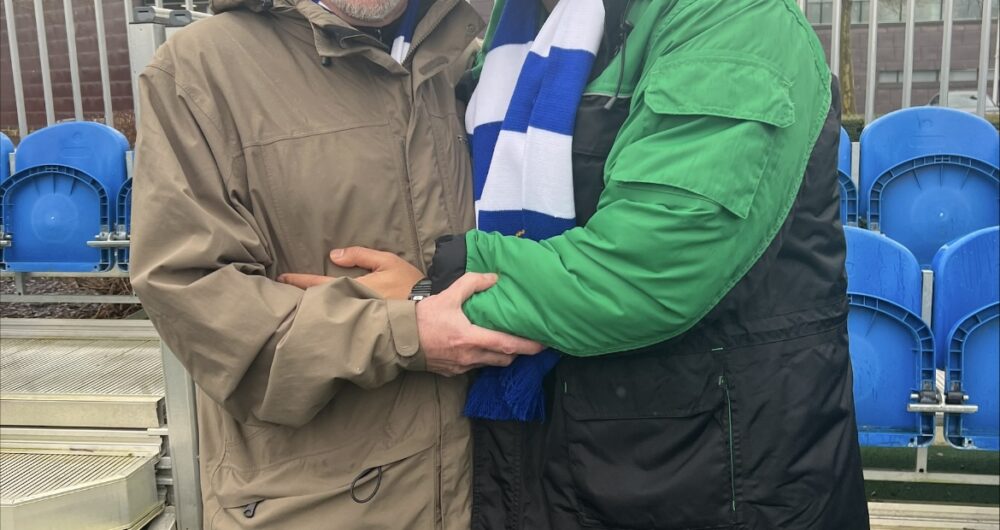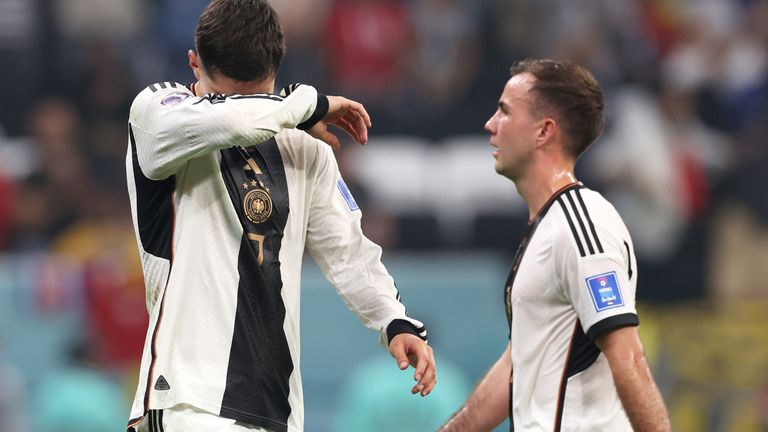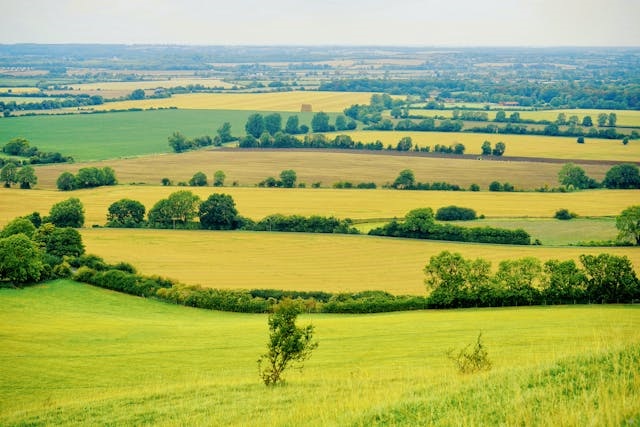A final-year medical student has described the moment he raced through a crowd of football fans to save the life of a fan who had collapsed with a heart attack at a premiership match.
Prince Tandukar, 22, sprang into action as the rain fell at Stamford Bridge where Chelsea were playing Manchester City in front of a capacity 50,000 crowd.
The University of Buckingham student was on duty as a St John’s Ambulance volunteer when he heard cries for a medic somewhere high in the East Stand. Scrambling from his seat and squeezing his way past hundreds of drunken fans, he reached 66-year-old Paul Archer, who was gasping for air and struggling to breathe.
“He was red, very red, and he had no pulse and I tried to stay calm, but with the chaos around it was very difficult,” said Prince.
Mr Archer had suffered cardiac arrest and under normal circumstances, it would have been relatively straightforward to deal with, but it didn’t turn out that way. Among the pandemonium, Prince found himself having to navigate one problem after another.
“It was my partner’s first day doing an event after he has just been qualified. While I was assessing Mr Archer, he was just standing around because he wasn’t from a medical background either. Unfortunately, there were a lot of drunk people around and they were being rude to him saying things like ‘give him adrenaline’, ‘give him a shot’.
‘He had been clinically dead for eight minutes’
“I think they just wanted to see something like Grey’s Anatomy drama or a scene from a movie, so I just had to calm them down. With hundreds of drunk people watching, you can’t do a defibrillation or anything.
“The stairs in the stadium are very narrow so I couldn’t even get into position to give him CPR, so I had to radio for a stretcher so we could move him to the medical room.”
After eight minutes of CPR, Mr Archer had been clinically dead for 20 minutes.
“He was wearing a very thick down jacket so we had to cut it off, and I’m pumping as hard as I can. The way to think of it is: if you have two turkeys on top of the other and you are doing diamond push-ups on top, so you can imagine the force. I ended up breaking his ribs. Well, I had to. The heart needs pumping and its naturally protected by the ribs.
“Because of his jacket that we cut off; it looked like it had snowed in there by the end of it.”
Prince has been a volunteer for St John’s Ambulance for three years and done charity work in his home nation, Nepal, following the horrific earthquake of 2015.
“I’ve volunteered at marathons and other football games before. In Nepal, because the schools were destroyed, some of my friends went and taught kids how to read English and taught them maths. And that’s how it first started.
“When I went to Bradfield College, I ran a fundraiser event for a week to raise money for Alexandra Devine, the children’s hospice, then after that I was the charities prefect and helped run the other charities.”
While Prince may seem well trained in dealing with something like this, he had a more personal reason to give it his all.
“Two weeks before this, my grandad had passed away from a heart attack in the middle of the night. He was on the first floor and my parents were on the second or third floor but because it was in the middle of the night they were sleeping, and by the time they realised, because they didn’t know CPR they had to drive him to the hospital and it was too late.
“Mr Archer was a similar build, similar age to my grandad and I was just hoping that he survived because it made me think of him.”
To any mere mortal this would be a traumatic experience to go through, but Prince, who has worked for a year in a hospital and is studying to be an Orthopaedic surgeon, has experienced a lot.
Training ground invitation offered as a reward
“The worst I’ve dealt with is just hypothermia when your muscles break down. In the London Marathon, a runner collapsed about a kilometre from the finish line because his muscles started spasming. His temperature went up to 41 and he was peeing Coca-Cola, so we had to bump ice buckets on him for ten minutes.”
But no CPR this time?
“No, this was my first-time doing CRP. But I’ve taught a little bit of CPR to younger children. As part of St John’s, we can go out to the events or volunteer to teach kids. Every Wednesday I go to the Royal Latin to teach kids aged 10-16 CPR and basic first aid.”
As a token of appreciation for his efforts, Prince was invited down to Cobham Training Centre, the base of the first team, where he was reunited with Paul and his two sons. He was also able to meet the players and spend time speaking with them.
“It was definitely a once-in-a-lifetime opportunity because Chelsea paid for taxi and transport, and I had my exams the next week, so I was debating whether to go or not, but I’m really glad my friends convinced me.
“I really enjoyed talking with Paul’s son, Nick, because he was telling me about his scuba diving trips and I love scuba diving. Just spending time with Mr Archer, for me was more important. You know when you instantly click with a person, and you immediately just connect? It was like that, felt like I had met a long-lost friend.”
Doctors described it as a miracle. Mr Archer was saved and while he is a bit sore was very grateful for Prince’s work.
When he spoke to St John’s Ambulance, he said: “Prince – what an apt name – I am so grateful to be able to thank this impressive and humble individual. You may have broken all my ribs – but I love you for it.”





